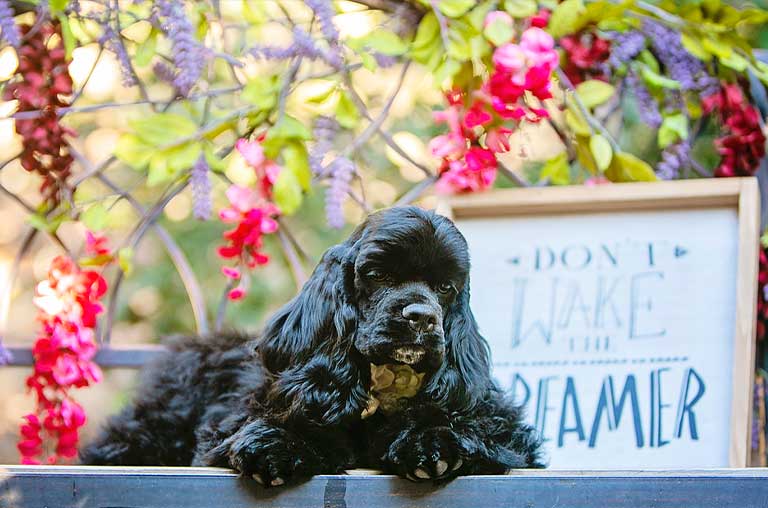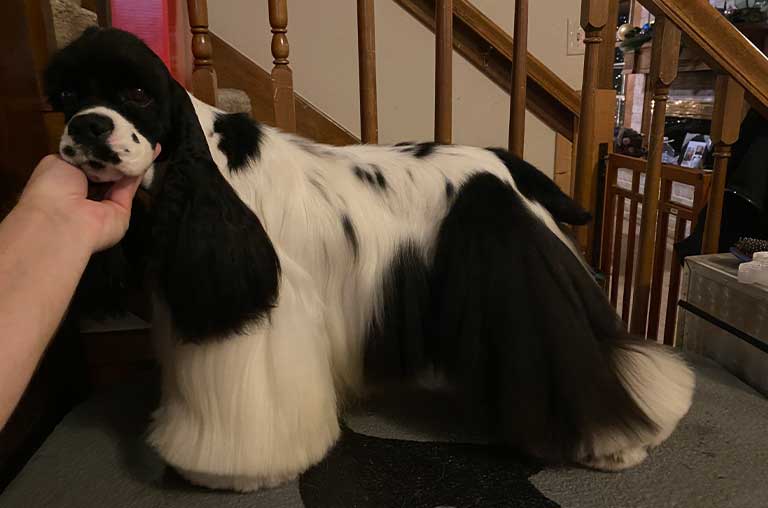When you’re on a walk with your cocker spaniel, you’ll notice them stopping to sniff at every fire hydrant, telephone pole, and tree they come across. You’ve probably wondered why this happens, and whether it’s good for your dog to be sniffing this much. Good news, it’s a great thing! In this article, we’ll be taking a closer look at what your cocker spaniel’s nose knows.
Exploring the World
A dog’s primary sense is that of smell. They have up to 300 million olfactory receptors, meaning they can smell a lot of things we humans can’t. While you look at the claw marks a cat left on a tree, your dog can smell them. And not only can they smell that the marks came from a cat, they can even tell which cat, and how old the claw marks are. They’ll be able to tell whether the cat is still in the area, or if the marks were left yesterday. And they can sniff out the age, breed and sex of other dogs who’ve made their mark on the local fire hydrant. While you’re out walking, they’re gathering all this new information from the scents around them.
Making Scents of it All
As your cocker spaniel gets all this information in their nose, they have to figure out what to do with it. If they smell that the cat is still in the area, they might get excited and want to find it. The smell of a less dominant local dog on the fire hydrant will make them want to cover it up with their own scent. And the smell of a delicious, dropped treat is enough to get them on a direct route to the source. It gives them the opportunity to make decisions and interpret stimuli they won’t find at home, which builds new neural bridges, especially in puppies who are still learning about the world. Sniffing is a workout for both your dog’s nose and their brain, and should be encouraged.
Sniffing as a Mood-Booster

According to the AKC, not letting a dog sniff is like “putting a blindfold on a person.” This can lead to anxiety, which in turn can lead to big problems. Letting your cocker spaniel explore in their best way makes them happier and more confident. They’ll be more content, and so will you. So let them sniff, and see that little tail wag like crazy. They’ll probably be a lot calmer when you get home, too. Remember, if your dog sniffs food but does not eat then there might be some issues and you should take necessary steps for that.
Encouraging the Sniff
Don’t get too impatient when your cocker spaniel decides to take in all the olfactory gossip at the corner fire hydrant. In fact, if you know the places they like to sniff best, plan your walks so you pass by those places often. Seeing your little buddy so excited is sure to bring a smile to your face, and they’ll be happy to smell everything, and to know you brought them to their favorite sniffing spots.
Smell Walks
One of the best things you can do for your dog is what’s known as a “smell walk.” Clip the leash on, and let their nose take you wherever they think is interesting. You’ll get to see things from a dog’s perspective, and they’ll be happy to follow their nose. If you don’t always have the time for a full smell walk, a bit of time at the beginning or end of a normal walk will help a lot. However you schedule it, it’ll be good for your dog.
Scent Work
Another way to keep your cocker spaniel’s nose and brain happy is with scent work. This is an AKC trial sport, turning sniffing into a fun game. The dog and handler work together to find cotton swabs saturated in essential oils. Unlike in most dog sports, the handler doesn’t have to do much; the dog’s nose is the star of the show. They find the swab, and then alert you to where it is. Their alert signal is up to you: Barking, pawing, pointing, whatever you wish to train. You can register your eager sniffer for scent work quickly and easily. It can be taught at home, no need for expensive classes or travel. And best of all, it’s a great way to bond with your cocker spaniel.
In Conclusion
Sniffing is your cocker spaniel’s way of exploring the world. They can learn what’s around them, and make decisions on what to do with that information. It’s good for their brain, and makes them happy; it should be encouraged and treated with patience. Take your dog on a smell walk, or even enroll them in AKC scent work, to get their nose working. With these things in mind, you’ll have a happy cocker spaniel.

Leave A Comment